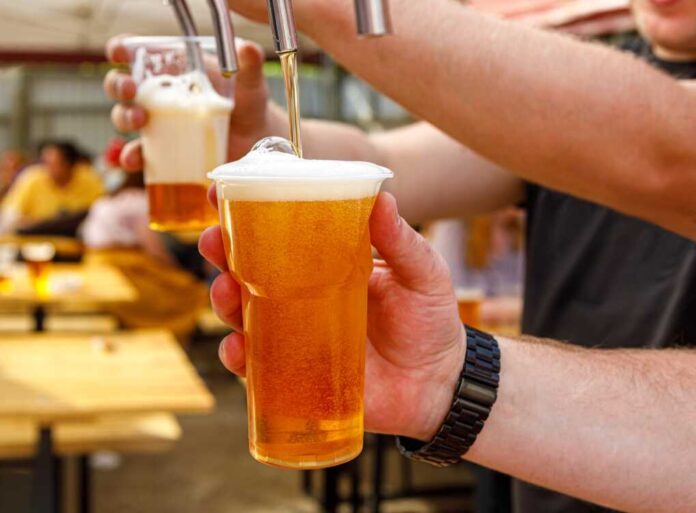
Aging is an inescapable part of human life, a complex interplay of genetic, environmental, and lifestyle factors.
Although we can’t do much about many of these factors, alcohol consumption stands out as a powerful variable that we have some control over.
Alcohol and Cellular Aging
At the cellular level, aging is marked by the shortening of telomeres ― protective caps at the ends of chromosomes. Regular alcohol consumption accelerates this shortening.
Shortened telomeres are associated with age-related diseases such as cardiovascular disease, diabetes, and certain cancers. Alcohol, by speeding up telomere shortening, may thus hasten the onset of these diseases.
Oxidative Stress and Alcohol
The body’s fight against aging involves combating oxidative stress, a byproduct of normal cellular function. Alcohol consumption increases oxidative stress by generating free radicals, unstable atoms that can damage cells, leading to premature aging.
This process is akin to the rusting of metal, where exposure to elements leads to gradual degradation.
The Brain on Alcohol
Chronic alcohol usage can lead to a reduction in brain volume, impairing cognitive functions. These changes are not always immediately noticeable but can significantly affect quality of life as one ages.
Memory, problem-solving skills, and the ability to process new information can all deteriorate due to alcohol’s influence on the brain.
Alcohol and Hormonal Imbalance
Alcohol affects the endocrine system, disrupting hormone balance. This disruption can accelerate aging in various ways, from osteoporosis due to altered calcium regulation to changes in skin health due to imbalances in sex hormones.
Hormones play a pivotal role in maintaining youthfulness and vitality, and alcohol’s interference with this system can have far-reaching consequences.
The Social Dimension of Alcohol and Aging
Beyond the biological impacts, alcohol has social implications that can influence aging.
Social drinking can foster connections and a sense of belonging, potentially beneficial to mental health.
However, excessive consumption can lead to social isolation, a factor known to contribute to rapid aging and decreased life expectancy.
A Balanced Perspective: Moderation and Awareness
While the effects of alcohol on aging are significant, they are not deterministic. Moderation and awareness can mitigate these effects. For those who choose to consume alcohol, doing so responsibly and in moderation can be part of a healthy lifestyle.
For others, abstaining completely may align better with their goals for healthy aging.
The relationship between alcohol and aging is complex, interwoven with biological,
psychological, and social factors. Acknowledging this complexity is the first step in making informed decisions about alcohol consumption as part of a broader strategy for aging well.
This awareness enables individuals to navigate the aging process more gracefully, understanding the role of alcohol in shaping their journey through the years.






















